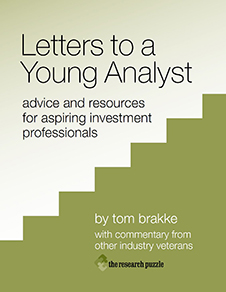
- Thursday, September 24th, 2009
- thus spake the king
-
A wonderful recent piece by Michael MauboussinLegg Mason | Mauboussin is a great thinker and writes interesting pieces about the “how” of investing. The fact that Legg Mason has struggled for much of the time since he has been there does not diminish his work. Process versus outcome and all of that, or maybe a touch of the very thing I write about in this piece? explores the behavior of investment committees, and provides a broad survey of issues that confront groups of decision makers of all kinds. It reminded me to return to the table I first included in “rational choices,”the research puzzle | This piece looked at how decisions get made at investment institutions. albeit with a new character in position (yes, that’s a crown, not a pumpkin for the season):

I once was a member of a committee (this was not in the investment world) that had received a lengthy analysis from a consultant charged with making detailed recommendations for us to consider. Having pored over the report, I was looking forward to a robust discussion about its contents. When it came time on the agenda to review it, the person wearing the figurative crown began by saying, “OK, here’s what I want to do.” It was not a statement of the process he thought we should follow, but of the decisions that should be made. Instantly, the debate was framed and the die was cast.
There also are subtle ways that decision making processes get distorted. (For example, one time I participated in an important set of decisions that were done via conference call. The votes were taken one after another using the same order of roll call each time. By virtue of their verbal framing of their choices, there was no question that the votes of those at the end were influenced by those at the beginning.) However, as Mauboussin’s piece suggests, it is incumbent on those “in power” to strive to get the process right. If they don’t, they can consciously sway the group for good or evil, or just bungle it without intent.
Consider a slightly revised image, one perhaps more appropriate to decisions within an investment firm:

Performance success, especially when accompanied by media praise, confers a certain status on those that have generated it (usually defined as relative performance not adjusted for risk). In many organizations, that can lead to leadership roles being added to portfolio management responsibilities, a particularly perverse strain of the Peter Principle. Even if that is not the case, there is a natural tendency to defer to such individuals, especially if not making waves helps at bonus time.
It never makes sense. The leaders of groups, and the star performers of the investment world, need perspective and honesty from those with whom they work. If they lack the humility and insight to understand that, it likely will end in tears for all.
Building high-functioning teams in the investment world is difficult — these are, after all, typically highly compensated, very smart people, with larger-than-average egos to boot. And I’m not saying that a feel-good, consensus-only kind of environment makes sense. I actually prefer it when there is a benevolent dictator that understands what makes sense for everyone concerned (and not just for today but for the long term), and is willing to see things in new ways.
It’s just that they’re so hard to find.
